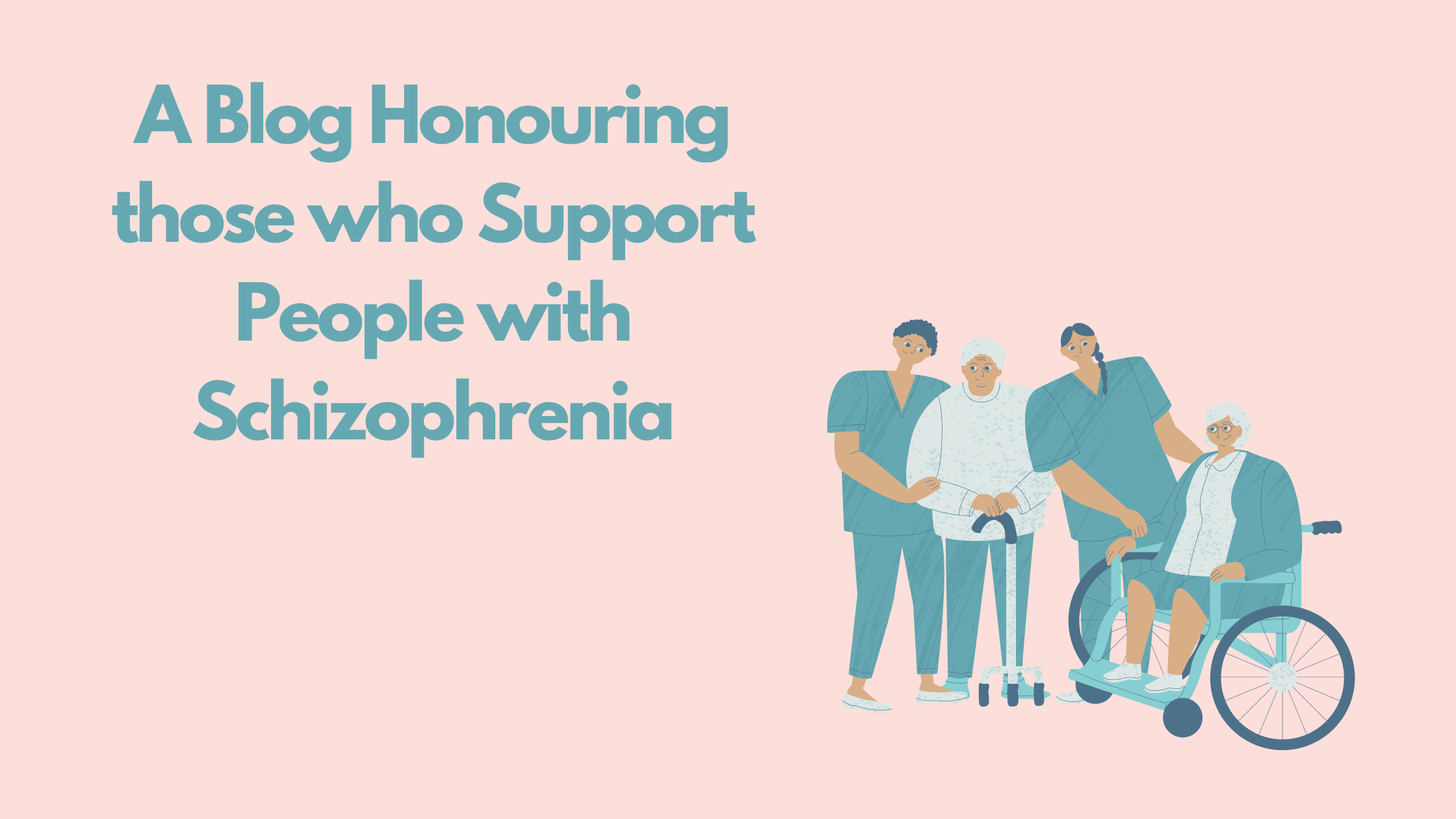
This week we took part in Schizophrenia Awareness Day, which we have seldom been aware of ourselves, let alone acknowledged, until now. With such a day comes all kinds of social media posts and blogs like this– there’s a style, fact or opinion to fit everyone with schizophrenia! We’ve decided to celebrate the occasion with a few words to honour our colleagues who devote their lives and careers on helping people like Erica, who live day-in, day-out with a diagnosis of schizophrenia.
As Erica says: “After over two decades of living with schizophrenia, one decade of which I’ve been open about it, I’ve come to learn as much about myself as I have about psychologists and psychiatrists. Like patients, some are good and some not (it all depends on who you ask!).” Just like patients, mental health professionals come in all shapes and sizes. Unfortunately, some colleagues dramatise schizophrenia or promote anti-medication messages for the sake of bolstering their own careers. Fortunately, most don’t.
Erica has been in a psychotic crisis and the only option at the time was private therapy at £45 an hour once a week: “Only after my situation improved, and I finally received NHS input (?with medication and therapy) did I realise that I had more qualifications than my private therapist who didn’t even hold an ordinary degree in anything. His qualification was, simply, living with depression and holding up a marriage at the same time. I felt ripped off and misguided.”
It’s particularly tragic (and potentially dangerous) when laymen like this set themselves up as ‘healers’ or psychotherapists. As from the example above, there are no qualifications required – anyone can call themselves a therapist. It’s even sadder when the charities supposed to support people with a major mental illness and cajole vulnerable patients into volunteering their stories of extremely personal trauma and abuse, named, to generate donations and support corporate charity salaries.
As Erica say: “Personally speaking I seldom give interviews about psychosis to journalists or academics these days – it is upsetting to see my own adversity shoehorned into someone else’s agenda and bias. There have been times I’ve done this in the past that have resulted in severe anxiety and tears (yet the person relaying my story has made a tidy profit from my juicy bits of misery).”
The bottom-line is that antipsychotic medication and various forms of support and psychotherapy from trained professionals work best together, and better than either alone, in treating symptoms, keeping people well and promoting recovery. Around 5% of the population will people will experience psychosis in their lifetime. Some recover without treatment. Some deteriorate, and about 5% will slip away to suicide. Others do away with hope completely – there’s a saying ‘it’s the hope that kills you’ and Erica has adopted it as a mantra herself in times of despair. But today, on Schizophrenia Awareness Day, it is important to recognise that most people with schizophrenia will recover with treatment.
Erica feels extremely lucky to say “I feel happy with myself and have managed to recover a decent standard of life stretching over the last decade.”
We have written our self-help book to hopefully give a little useful information and hope – to prepare the way to pave little steps towards recovery. It’s good to know there will always be mental health advocates and professionals willing to go the extra mile for people with psychosis and their carers. So, to those helping for all the right reasons, we salute you today!
